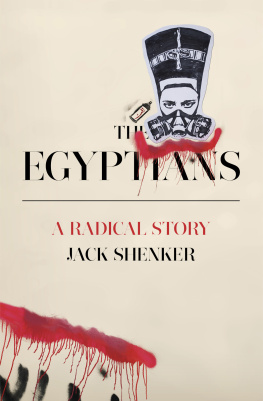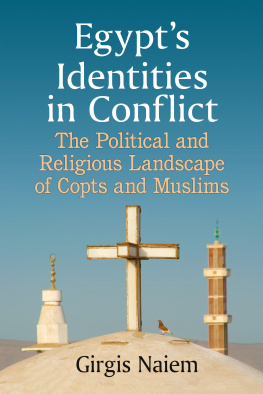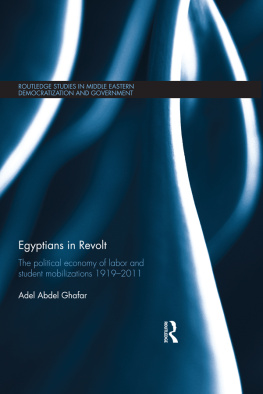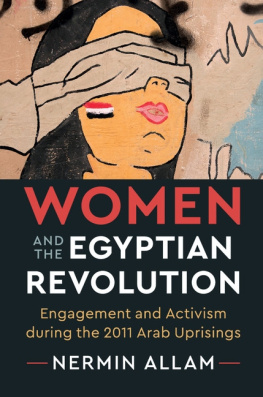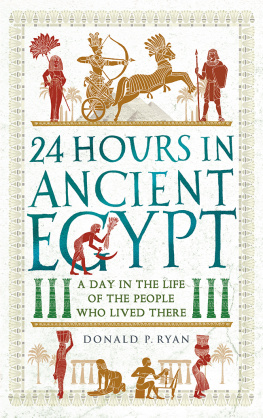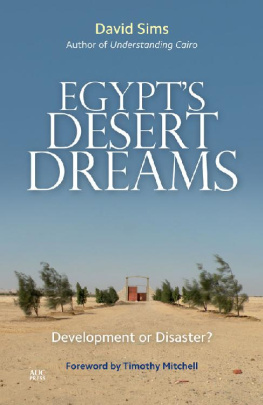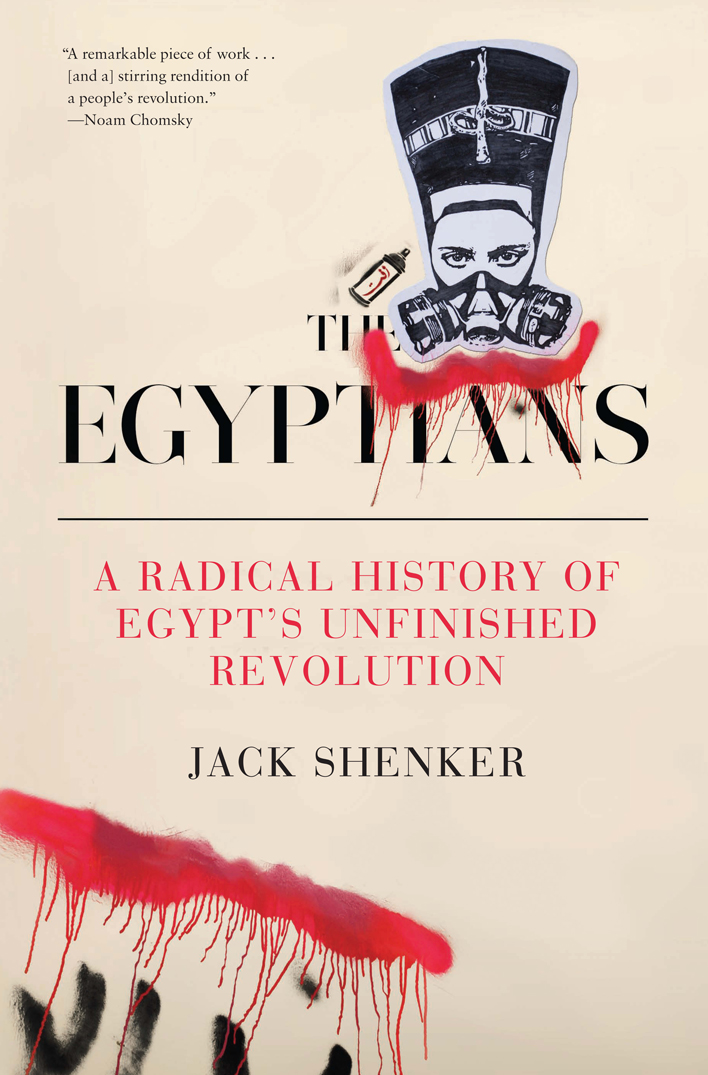More Praise for Jack Shenkers The Egyptians
The Egyptians belongs in the bookshelf next to George Orwells Homage to Catalonia and John Reeds Ten Days That Shook the World. This is revolutionary journalism at its finest.
Simon Assaf, Socialist Review
Jack Shenker pulls no punches in his examination of the post-Nasser Egyptian establishment... compellingly reported and powered by a tenacious empathy for the underdog... engrossing.
Justin Marozzi, The Sunday Times (London)
A peoples history of the revolution that foregrounds the activists and campaigners who laid the foundations for Tahrir Square.... A refreshing, original take on a country with an uncertain future.
Sameer Rahim, The Daily Telegraph
The real story is more confused and more complicated, and, as Shenker presents it in this detailed, meticulous and fascinating book, more hopeful.... A historical long view is just one of the things that makes this book stand out.
Anthony Sattin, Observer
Truly astonishing... painstakingly researched, moving, engaging and engaged, the most articulate and comprehensive account of the revolution I have read to date.
Mariam Ali, Open Democracy
A sparky and resolutely clich-free look at the struggle for democracy in 21st-century Egypt.
Rachel Cooke, Observer
Jack Shenker cuts through the complacent clichs and self-flattering illusions of foreign correspondents and experts to produce an intimate and comprehensive portrait of contemporary Egypt, which is as historically informed as it is politically shrewd.
Pankaj Mishra, author of From the Ruins of Empire
Essential reading for those who want to go beyond the conventional wisdom and understand the real causes of upheaval in the Arab world.
Lindsey Hilsum, author of Sandstorm: Libya in the Time of Revolution
Shenker is one of the best observers of the current scene in Egypt.
Khaled Fahmy, professor of modern Middle East studies at Harvard University
This superbly written book documents the great victoriesand terrible setbacksof a people thirsting for democracy and social justice. A courageous writer who gives voice to the hopes and fears of the people of Egypt.
Owen Jones, author of Chavs and The Establishment: And How They Get Away with It
I started reading this and couldnt stop. Its a remarkable piece of work, and very revealing. A stirring rendition of a peoples revolution as the popular forces that Shenker vividly depicts carry forward their many and varied struggles, with radical potential that extends far beyond Egypt.
Noam Chomsky
Shenkers book understands the Egyptian Spring, and the counter-strikes against it, as a deeper social process that, far from being over, will continue driving revolutionary upheaval in the years to come. He reframes political events as the products of social and technological change. And, above all, he refuses to give up hope.
Paul Mason, author of PostCapitalism
Shenkers book relates big ideas to dozens of intimate stories about Egypt and its people... his passion, energy and journalistic acumen are remarkable.
Jon Wright, Geographical

Dedicated to the Egyptians of Revolution Country
and for Mary
2016 by Jack Shenker
All rights reserved.
No part of this book may be reproduced, in any form, without written permission from the publisher.
Requests for permission to reproduce selections from this book should be mailed to: Permissions Department, The New Press, 120 Wall Street, 31st floor, New York, NY 10005.
First published in Great Britain by Allen Lane, Penguin Random House UK, 2016
Published in the United States by The New Press, New York, 2017
Distributed by Perseus Distribution
LIBRARY OF CONGRESS CATALOGING-IN-PUBLICATION DATA
Names: Shenker, Jack, author.
Title: The Egyptians: a radical history of Egypts unfinished revolution / Jack Shenker.
Description: New York: The New Press, 2016. | Includes bibliographical references and index.
Identifiers: LCCN 2016027141| ISBN 9781620972564 (e-book)
Subjects: LCSH: RevolutionsEgyptHistory21st century. | EgyptPolitics and government21st century. | EgyptSocial conditions21st century. | EgyptiansSocial conditions21st century. | EgyptHistoryProtests, 2011 | EgyptHistoryProtests, 2011Personal narratives.
Classification: LCC DT107.88 .S4364 2016 | DDC 962.05/5dc23 LC record available at https://lccn.loc.gov/2016027141
The New Press publishes books that promote and enrich public discussion and understanding of the issues vital to our democracy and to a more equitable world. These books are made possible by the enthusiasm of our readers; the support of a committed group of donors, large and small; the collaboration of our many partners in the independent media and the not-for-profit sector; booksellers, who often hand-sell New Press books; librarians; and above all by our authors.
www.thenewpress.com
Composition by Jouve (UK), Milton Keynes
This book was set in Sabon LT Std
Printed in the United States of America
2 4 6 8 10 9 7 5 3 1

Who are they and who are we?
Ahmed Fouad Negm, Egyptian poet (19292013)
Table of Contents
Guide
Contents

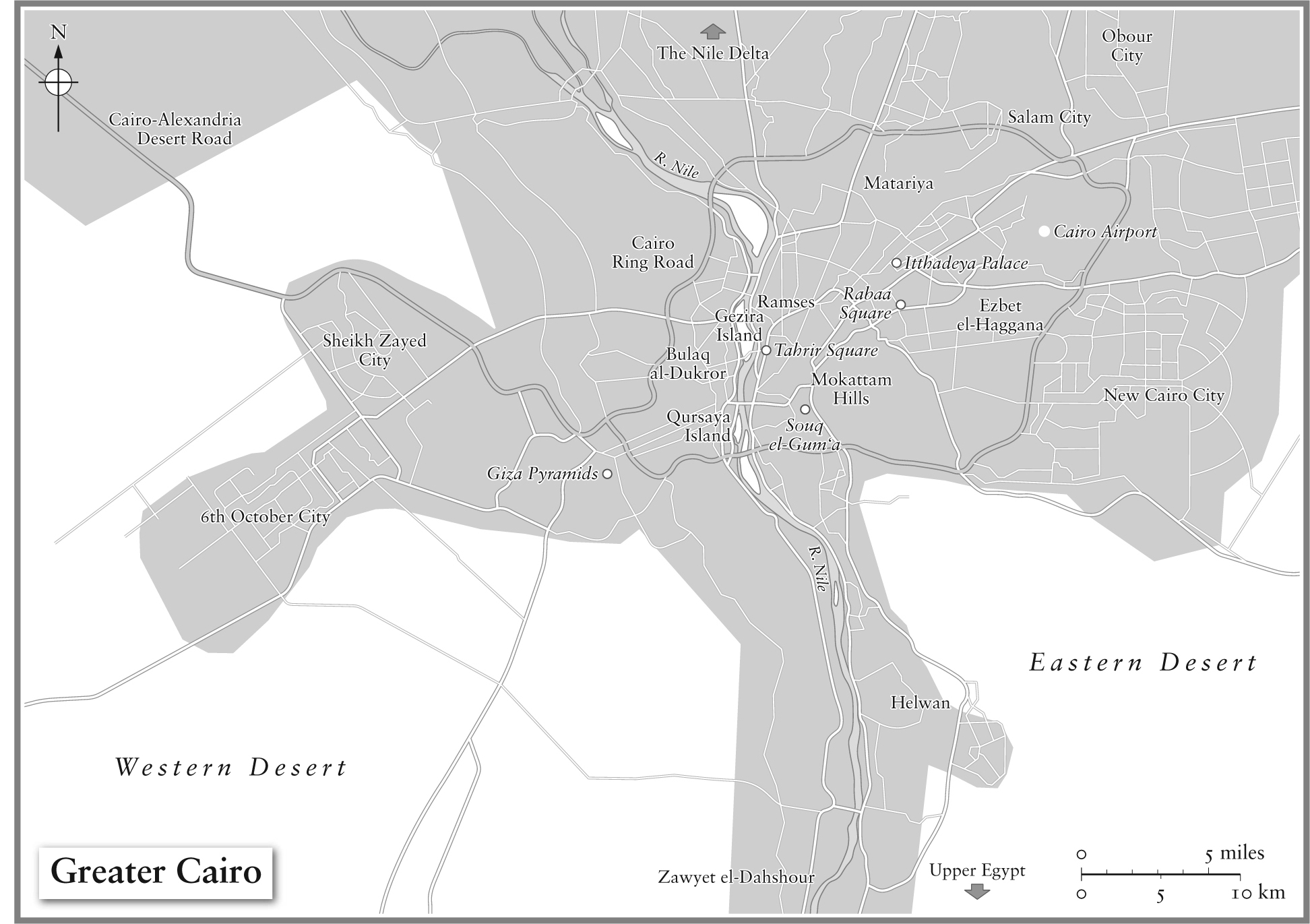

The transliteration of Arabic words into English is notoriously tricky; any standardized system must inevitably sacrifice at least one of accuracy, simplicity or complete consistency. In this book, Arabic words have been transliterated according to a system that aims to render them familiar to Arabic speakers and pronounceable for non-Arabic readers.
Nearly all Arabic vocabulary is transliterated from Egyptian Colloquial Arabic, rather than the more formal Modern Standard Arabic. Where an Arabic word is already commonly known in English, the familiar English spelling has been used even when it conflicts with the transliteration system. The same applies when a person or institution has already adopted a particular English spelling of their own name.
The video is shot from a balcony, and its style is familiar. A shaky, handheld camera, tracking the action back and forth. Figures below, mustering on some unspecified stretch of tarmac and urging one another forward. The chants of the crowd, and eventually their screams. El-shaab, yureed, isqat el-musheer! El-shaab, yureed, isqat el-musheer, they bellow, again and again. El-shaab, yureed, isqat el-musheer! El-shaab, yureed, isqat el-musheer!
The rhythm of the words is like a mounting drumbeat, steeling the children and they are children, some almost in their early teens but most no more than nine or ten years old for the battle ahead. In Arabic, el-shaab, yureed, isqat


